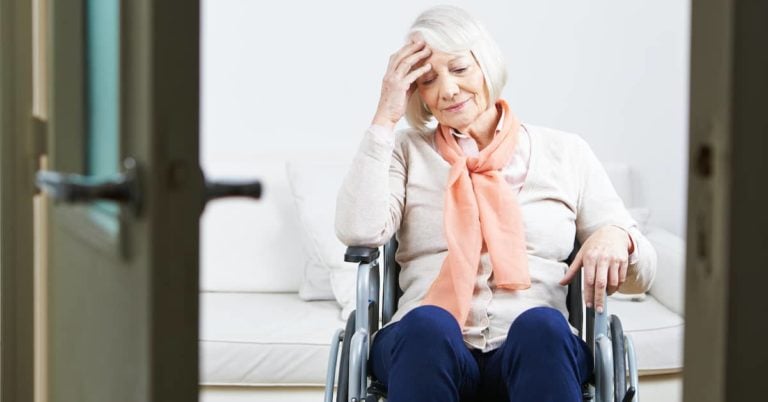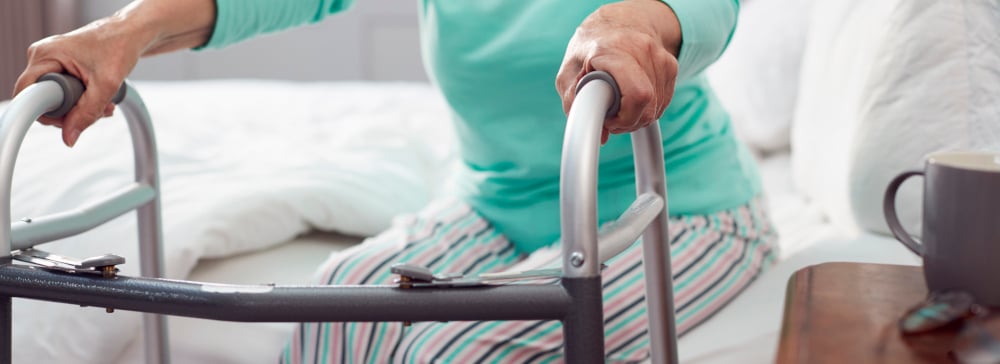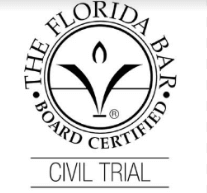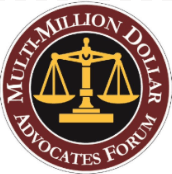
What Are the Signs of Nursing Home Abuse?
It is natural to be concerned if you have a loved one in a nursing home. Entrusting the care of a senior citizen to someone else is never easy, particularly if you are aware of the many alarming statistics around abuse and neglect in these facilities.
Families need to be vigilant and stay involved to ensure that elderly relatives are safe and their needs are met in nursing homes. It can be difficult to identify signs that a loved one is being abused or neglected, especially among seniors who are being threatened and/or those with cognitive impairments.
If you have reason to suspect that your loved one is a victim of abuse or neglect, you should trust your instincts. Take steps to keep your family member safe, and consult a nursing home abuse lawyer as soon as possible to get a full understanding of your legal rights and options.
How to Recognize Nursing Home Abuse and Neglect

Whether it is due to pride, fear, or difficulty communicating, nursing home residents often don’t speak up when caregivers and staff mistreat them. As such, it is often up to family members and close friends to take action if something seems wrong.
Nursing home abuse can take several different forms. Frequent visits are the best tool you have for detecting the warning signs of abuse, neglect, and exploitation.
Signs of Physical Abuse
Physical abuse consists of any kind of violence directed toward a resident’s person. This may include pushing, shoving, slapping, punching, kicking, and choking (to name but a few examples).
Possible signs that a nursing home resident is the victim of physical abuse include:
- Physical marks such as bruises, welts, cuts, etc.
- Broken bones
- Unexplained falls
- Burns
- Scarring
- Damaged personal effects (such as clothes, eyeglasses, etc.)
Another form of physical abuse involves the unnecessary use of restraints. Nursing home residents who have been restrained may have marks on their wrists and/or their ankles. Medication may also be misused as a form of chemical restraint, potentially leaving your loved one in a disoriented or unresponsive state.
Signs of Emotional Abuse
Any form of abuse can carry immense psychological consequences for vulnerable seniors. Generally, however, emotional abuse takes the form of verbal abuse on the part of a caregiver or staff member.
Nursing home residents may be subjected to insults, humiliating or degrading comments, threats, and more. In egregious cases, the abuse may be witnessed by other residents, staff members, and visitors.
Seniors who endure emotional abuse may exhibit a wide range of behaviors, including:
- Withdrawal from social interactions
- Agitation
- Depression
- Fearfulness and anxiety
- Mood swings
- Extreme nervousness around residents and members of the staff
If your loved one starts exhibiting significant changes in behavior, it is important to get to the root of the problem as soon as possible. Another red flag that may be indicative of emotional abuse or other mistreatment is the refusal of a caregiver to leave you alone with your family member, as well as aggressive or bullying conduct in your presence.
Signs of Sexual Abuse
Sexual harassment and violence are among the most despicable forms of nursing home abuse. Instances of abuse might range from explicit comments to sexual assault and rape.
Nursing home residents who endure sexual abuse may exhibit a number of physical and emotional signs, including:
- Bruising and other physical injuries (particularly to areas such as the breasts, buttocks, and genitals)
- Sexually transmitted infections and diseases
- Damaged clothing (particularly undergarments)
- Sudden onset of anxiety or depression
- Loss of interest in day-to-day life and favorite activities
- Self-isolating behavior
Sexual abuse is not solely perpetrated by nursing home staff and caregivers. Residents may also be victimized by their fellow residents. If this is the case and the nursing home staff and administration turned a blind eye to the abuse, you and your family may be entitled to compensation.
Signs of Financial Abuse and Exploitation
Caregivers and other nursing home workers sometimes abuse their power for financial gain. This can take a variety of different forms, from stealing a resident’s money and belongings to manipulating residents into signing away their assets.
Financial abuse and exploitation can be very difficult to detect. The following are among the most common red flags:
- Cash and valuables missing from your loved one’s room
- Unexplained purchases and transactions
- Insufficient funds to pay bills
- Unauthorized bank withdrawals
- New credit cards and bank accounts opened in your loved one’s name
- Exorbitant gifts to a caregiver
- Changes in your loved one’s will, power of attorney, etc.
If you are involved in an elderly loved one’s finances, it is important to keep an eye on any unusual activity. Some issues are honest mistakes, such as failing to pay a bill or overdrawing an account. In other cases, however, someone at the nursing home may be abusing or exploiting your loved one.
Signs of Nursing Home Neglect
Much of the concern around the safety of residents in nursing homes is (justifiably) focused on issues of abuse. Abuse is an intentional act of wrongdoing on the part of a caregiver or another member of the nursing home staff.
However, it is crucial not to overlook the role that neglect might have played in the harm your loved one has suffered. Neglect may be intentional, or it could be the result of poor training and lack of qualifications on the part of the staff. In either case, it is important to be aware of the potential warning signs of neglect in a nursing home:
- Decline in your loved one’s physical health and/or emotional well-being
- Worsening health conditions
- Infections
- Bed sores
- Poor hygiene
- Unsanitary and unsafe living conditions
- Malnutrition and weight loss
- Dehydration
- Wandering around the facility without supervision
- Elopement (where a resident leaves the nursing home unbeknownst to the staff)
- Failure to provide adequate medical care
All of these issues indicate that something is wrong at the nursing home. They are also potential grounds for bringing a claim against the nursing home for personal injury or the wrongful death of your loved one.
It is in your best interest to speak to a nursing home abuse attorney if you believe that negligence or wrongdoing at the facility led to your loved one’s injuries or death. Prompt investigation is essential for collecting evidence and identifying who is at fault.
Contact a Nursing Home Abuse Lawyer Today

The challenges of nursing home litigation demand experienced representation. For more than 25 years, Kogan & DiSalvo has been representing residents and their families in abuse and neglect claims.
Our attorneys are committed to pursuing the compensation you and your loved ones deserve. This is not just a case; this is your life, and our team will provide you with step-by-step guidance to ensure you have all of the information and support you need to make informed decisions about your claim so you can move forward with confidence.
Please call Kogan & DiSalvo at (561) 375-9500 today for a free case review. Our nursing home abuse lawyers serve clients in in Boca Raton, Boynton Beach, Delray Beach, Ft. Lauderdale, Lakeland, Palm Bay, St. Petersburg, Stuart, Tampa, Vero Beach, and West Palm Beach.
 (561) 375-9500
(561) 375-9500
 Call
Call





